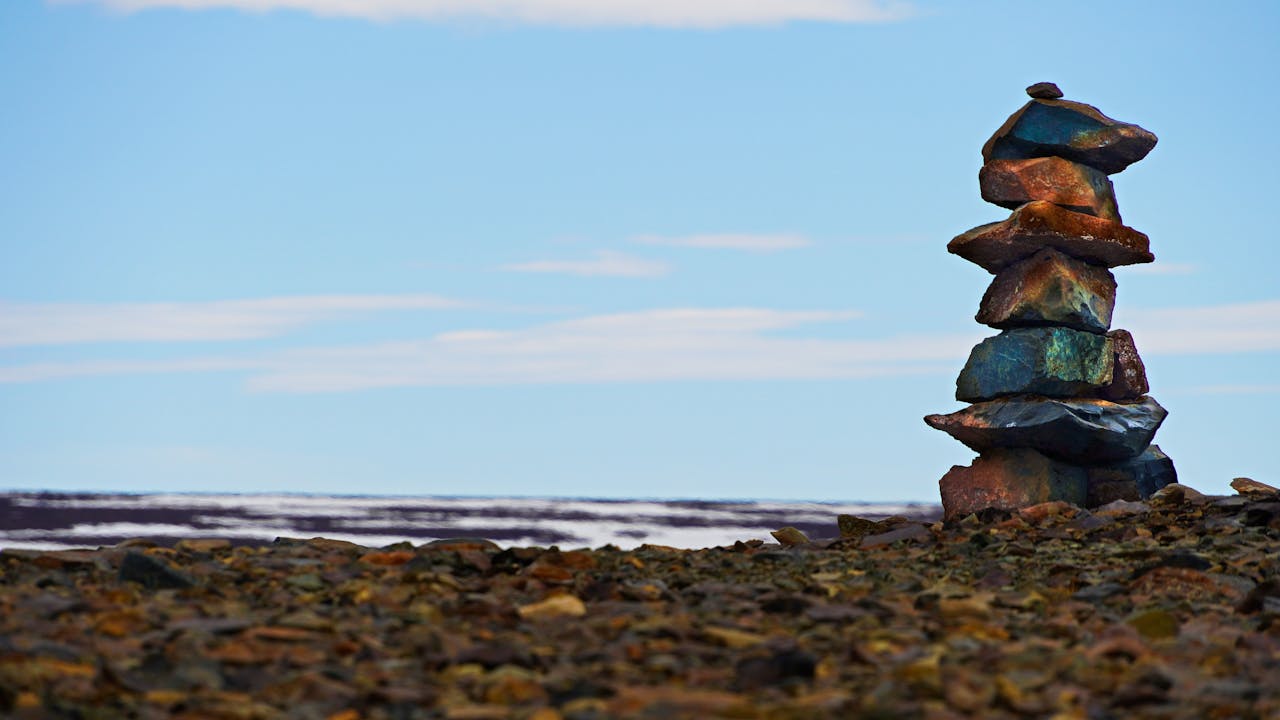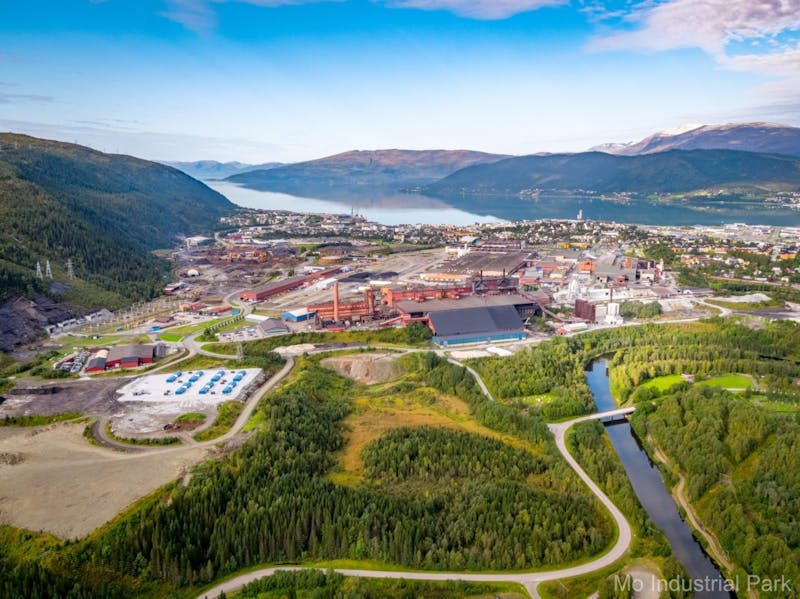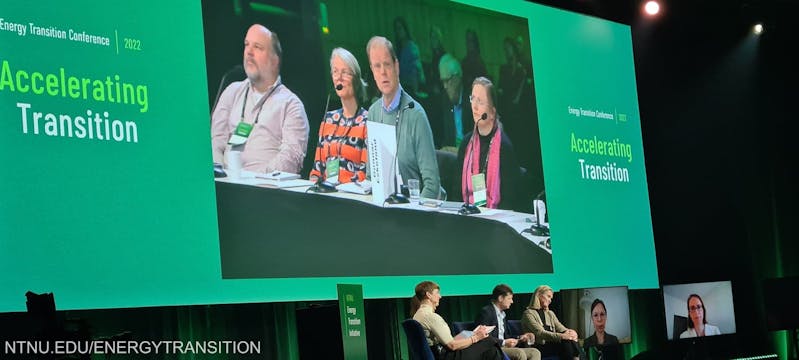When addressing sustainability in the Arctic, what comes to mind is mainly economic, environmental and social sustainability. However, with the current dramatic geopolitical developments, it is timely to examine the full meaning of sustainability. Is sustainability in a political sense becoming as significant? A reflection on Arctic sustainability in turbulent times.
Arctic Sustainability in Troubled Times

Economic, environmental sustainability
In discussions with Arctic stakeholders, the obvious question is not, should there be industrial development, but rather how to ensure that any economic development is done in a sustainable way. Sustainability, meaning economic development without damaging the extremely fragile environment - hereby threatening food security and livelihoods of the people living in the Arctic, and meaning without contributing further to global warming.
The implications of climate change are indeed devastating for the Arctic. Global warming is causing the Arctic to heat up dramatically, three times more than the rest of the world. According to the International Panel on Climate Change (IPCC)[1], “the dangers of climate change are mounting so rapidly that they soon will overwhelm the ability of both nature and humanity to adapt, unless greenhouse emissions are quickly reduced”. It is recognized that accelerated climate action, in mitigating and adapting to climate change, is critical to sustainable development. Hence, it is key to address climate change together with ensuring sustainability.
Today, with the Arctic gaining geo-economic importance, in a world that has become even more reliant on the rich natural resources including critical minerals from the Arctic and looking for shorter, more accessible sea-lines that will impact global shipping, the issue of sustainability has become more crucial than ever.
Is sustainable development possible in the Arctic? The response is definitely "yes", but it is not evident. It will require not only innovative policies to encourage sustainability, but also hard political decisions to refrain from non-sustainable practices, even if these go against national interests, and decisions involving the people living in the Arctic.
There is hardly any other area, where science, research and innovation does play such a key role, as it does in the Arctic. This is why Arctic Science Ministerials, linking politics with science, are so successful. This is why, science is often at the heart of Arctic policies - such as in the recent French Polar Strategy[2], and why the EU strongly supports Arctic Research. Innovative technologies allow for sustainable solutions as demonstrated by the following examples: the use of cold-climate technologies makes it possible to operate renewable energy sources in the Arctic. Windmills-park are currently under construction in the Canadian Arctic, to provide clean energy to mining[3], and to remote Indigenous communities who still are reliant on diesel. Technologies rooted in science, allow using fish-skin for therapeutic purposes: an Icelandic company uses renewable energy to process medical-fish-skin from sustainable fish stocks from the North Atlantic[4]. Classical heavy industries - severely polluting[5], manage with innovative technologies to produce e.g. green steel - a green hydrogen plant for steel production to be built in northern Sweden[6]. Finally, a very important sector, shipping, will need innovative technologies and particularly hydrogen energy, to provide green sea transport, and hence to contribute to sustainable shipping in the Arctic.

Often, the High North offers unique conditions for fossil-free production. It has plenty of renewable energy in the form of hydro- and wind-power, and is a center for knowhow on zero-emission industrial processes. An eye opener for me - having extensively visited the Canadian Arctic in 2016, was a visit to Mo Industrial Park in northern Norway in 2019. This industrial park contains all ingredients of circular economy, such as using renewable energy, hosting a data center, close interactions with universities and local communities, excellent connectivity with other northern regions, besides being an attractive place for the necessary workforce, including young people and families. Ensuring sustainability sometimes requires difficult, courageous political decisions. An example is Greenland - a nation known for striving for economic autonomy that would facilitate its political objective of independence, which banned future oil and gas exploration and uranium-mining[7] as part of the Greenlandic government focus on climate change.
Last but not least, the people of the Arctic. “Do not speak about us, but with us”, was an enlightening lesson that I learned from them. A more recent, positive development, is that the voice of the people in the Arctic is not only louder, stronger, but also that it is being heard. This should be so evident. They have a unique, important role at the Arctic Council. Within Arctic research, the value of Indigenous knowledge is increasingly being recognized. They are getting more involved in important decisions regarding Arctic economic, sustainable development, and even if it does not yet satisfy them entirely, steps are made in the right direction.
We can do without fossil fuels, certainly with less in the immediate future. However, exploring new oil and gas fields in the Arctic, should be an absolutely non-go.
Energy security and sustainability
The case of fossil fuels
The dilemma, especially for the EU, is clear: how to reconcile very ambitious climate-action-goals related to sustainable energy, with energy transition, and with energy security especially in time of crisis, when there is still heavy dependence on import of fossil fuels?
Regarding fossil fuels, UN Secretary General Antonio Guterres said clearly[8]: “Addiction to fossil fuels is mutually assured destruction. Our continued reliance on fossil fuels puts the global economy and energy security at the mercy of geopolitical shocks and crisis. We need to fix the broken global energy mix”. More simply stated by a journalist[9] at the occasion of COP26 in Glasgow: “In some respects, preventing climate breakdown is highly complicated. But in another, it is simple: we need to leave fossil fuels in the ground”. Scientific reports indicate that a sharp decline of fossil fuels must be realized to keep the temperature increase below 1.5 °c[10]. This means indeed, that fossil fuels must stay in the ground. Same position is taken by the International Energy Agency (IEA) [11] and by the EU, in its latest EU Arctic Policy[12].
Looking at the Arctic, with existing considerable oil and gas explorations, such as in Alaska, Norway and Russian Arctic, the region is known for its huge fossil fuel reserves. The problem is that - according to the UN production gap report[13], governments are still planning to produce more than twice the amount of fossil fuels in 2030 than would be consistent with limiting global warming to 1.5°c. Even if they are extracted in the most sustainable way - as in the case of Norway, they are and remain harmful for the fragile Arctic environment. They are contributing to the global warming. Even nations that claim to be leading the energy transition, keep drilling. New licenses to explore offshore reserves in the Arctic are being granted.
Limiting global warming will require major transitions in the energy sector, according to the latest IPCC Report[14]. Such global transition away from fossil fuels, is not only paramount to avoiding dangerous climate change, but also essential for sustainability in the Arctic. Fossil fuel companies in the High North are fully aware of the need of energy transition. At a recent Energy Transition conference[15], representatives from Equinor[16] indicated that right now, they are facing an energy trilemma: “We need to utilize the great technology competence, innovation potential and energy resources to solve the trilemma of energy: securing reliable, affordable, and low carbon energy”.
Finally, the call for energy security, the need for EU countries - many who are highly dependent on oil and gas from Russia, should not be an excuse for compromising on basic principles and values. Even without the crisis caused by Russia, Europe's energy security is a weak spot that needs to be addressed. Turning a blind eye - for ideological or other reasons, to other clean energy options, such as nuclear energy, is a major mistake. We can do without fossil fuels, certainly with less in the immediate future. However, exploring new oil and gas fields in the Arctic, should be an absolutely non-go.

Political sustainability
For a long time, sustained peace, stability, and security were taken for granted for the Arctic. The Arctic seemed to be immune to tensions from outside the region, although the risks of possible spill-over were always recognized. Even, when the first cracks appeared in 2014, “Arctic exceptionalism” was said still to be the rule, meaning the Arctic being an exceptional region of peace and cooperation, a unique region that is geopolitical more “isolated” than other regions in the world.
But, as Timo Soini, former Minister of Foreign Affairs of Finland pictured it in 2019: “You cannot put a do-not-disturb sign upon the Artic”.
Indeed, already in 2014 there were spillovers of external crisis upon the Arctic. When the Russian Federation invaded Crimea, it affected the Arctic. It impacted upon cooperation in the sphere of hard security, mortgaging considerable efforts realized in confidence-building between Arctic States. Through restrictive measures towards Russia, the Ukraine crisis spilled over to the economic sphere, hitting Russian offshore oil projects. The crisis affected Arctic governance structures, notably in the context of the Arctic Council, when Russia prevented the EU from gaining formal observer-status at the Arctic Council. However, in practice, the EU did and still does, enjoy full de-facto observership. It is very encouraging that all Arctic States (except for Russia) strongly support EU formal observership. More generally, the EU and Russia did cooperate rather well in the Arctic and wider Barents region, because of EU's (then applicable) policy of selective engagement with Russia.
When the Russian Federation invaded Ukraine on 24 February 2022, violating flagrantly international law, including the principles of sovereignty and territorial integrity, which are also key to the peaceful sustainability of the Arctic, 7 Arctic States took an unpreceded, fully justified decision to draw consequences and to pause the work of the Arctic Council.
So, the Russian war in Ukraine does spill-over on Arctic cooperation. And the more tense the situation between NATO and Russia becomes - where both sides have increased their military presence in the Arctic region - the more this tension will also spread to the northern areas of Europe[17].
Hence, some believe that the era of Arctic exceptionalism is ending, such as the UK Ministry of Defence[18], indicating that today's deteriorating global security environment poses the greatest threat to the security of the Arctic. Others characterise the new realities in the Arctic as a narrative of “peaceful competition” [19].
Sustainability is being affected in the Arctic, because the Arctic is not only local, it is also global. It generates global challenges; it requires global solutions to address them. In that sense, the Arctic it is not much different from any other region, in terms of being increasingly subject to political-strategic dynamics. A study by the Finnish Institute of International Affairs of 2015 illustrated, how forces and dynamics external to the region have had an impact on the co-operative spirit and governance practices of the Arctic[20]. I would add, that exactly because of the increasing geo-economic importance of the Arctic that is becoming more accessible - with more opportunities for mining, shipping and fishing, the interconnection with geopolitical dynamics will become stronger, certainly when key Arctic States are involved. So, no doubt that great power politics are spilling over into the Arctic; it can no longer be separated from the mainstream of international affairs.
Sustainability is being affected in the Arctic, because the Arctic is not only local, it is also global. It generates global challenges; it requires global solutions to address them.
Final considerations
Even if Arctic exceptionalism is becoming less exceptional, there still is a general wish and strong willingness to keep the Arctic a low-tension area, to protect its fragile environment and to shield the Arctic from climate change. A pillar of sustainability in the Arctic, is the strength of international cooperation. Another pillar is resilience - the proven capacity of the Arctic and its people to adapt well in the face of major challenges and to move forwards. Both go hand in hand: sustainability without resilience will not work.
The pillars of the house are currently shaking, but its foundation remains solid - a prerequisite for a strong, resilient, sustainable Arctic.
No. 4/2022, 12 April 2022
This article is a part of the Arctic Circle Journal Series which provides insight, understanding and new information. The material represents the opinions of the author but not those of Arctic Circle.

Marie-Anne Coninsx
Marie-Anne Coninsx was the first EU Ambassador at Large for the Arctic, after having been EU Ambassador respectively to Canada and to Mexico. In Canada, she extensively visited the Canadian Arctic. Her other postings as Minister Counselor at the EU Delegations to the UN in New York (US) and in Geneva (CH), provided her with an extensive experience on multilateral issues. He has been an official of the European Union for 35 years.
She studied law at Ghent University in Belgium, and did post-graduate studies in international- and European law at Cambridge University (UK) - including studying Law of the Sea, and at European University Centre in Nancy (France).
Marie-Anne Coninsx is Belgian, residing as well in Germany. She is fluent in Dutch, French, English, German and Spanish.
References
[1]IPCC Report of February 2022.
[2]Balancing the Extremes, France Polar Strategy 2030”, April 2022.
[3]The Raglan Mine, Nunavik region of Quebec. New Funds for Wind Energy Project in Northern Quebec, info in “Environmental Journal” March 2021.
[4]The company Kerecis from Iceland, that entered in a partnership with Arctic Circle on 30 March 2022.
[5]The CO² emission from the EU steel industry today, is equivalent to about half of all cars in the EU.
[6]H2 Green Steel aims to invest 2,5 billion Euro, create 1.500 direct jobs and produce 5 million tons of fossil-free steel by 2030 at a new plant at Svartbyn Industrial Park, near Boden in northern Sweden (The Independent Barents Observer, 24 February 2021).
[7]Legislation Act N°20, passed on 9 November 2021.
[8] 28 March 2022.
[9]George Monbiot, Guardian Columnist, 3 November 2021.
[10]„Unextractable fossil fuels in a 1.5°C world”, published in “Nature” on 8 September 2021.
[11]International Energy Agency.
[12]EU updated Arctic Policy of October 2021.
[13]The Production Gap Report 2021 (UNEP) - The report tracks the discrepancy between governments ‘planned fossil fuel production and global production levels consistent with limiting warming to 1.5°c or 2°c.
[14]IPPC Report of 4 April 2022 .
[15]Tech Port Trondheim Conference and NTNU Energy Transition Initiative (NETI)´s Energy Transition conference, March 2022.
[16]Henriette Undrum, Ulrica Fearn and Elisabeth Birkeland Kvalheim.
[17]Article “The End of an Exceptional History: Re-Thinking the EU-Arctic Relationship” Andreas Raspotnik & Andreas Østhagen, March 2022.
[18]The UK´s Defense Contribution in the High North, March 2022.
[19]In Polar Perspectives, No 11, March 2022. Entitled: “The New Arctic as a Zone of Peaceful Competition” Polar Institute and Wilson Center.
[20]„On Arctic Exceptionalism”, The Finnish Institute of International Affairs, Working Paper 2015.